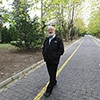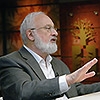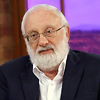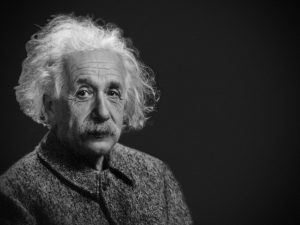Audio Version Of The Blog – 5/18/23
Listen to an Audio Version of the Blog
Download:MP3 Audio

Listen to an Audio Version of the Blog
Download:MP3 Audio

Michael Laitman, On The Times of Israel: “Israel Rethinks Its Identity”
This week, seventy-five years ago, in the midst of a war for its survival, David Ben-Gurion solemnly declared the establishment of the Jewish state: the State of Israel. But since that fateful day of May 14, 1948, Israeli society has become so divided that the historic document has become a weapon in the hands of parties that interpret the Declaration of Independence in a way that meets their agenda, regardless of the authentic intention of its authors, the leaders of the nestling Jewish state. As a result, a heated debate has emerged in Israel over what being Israeli means, what is the difference between being Israeli and being Jewish, which of the two takes priority, and can we have a just society for all its citizens when the country is defined as the homeland of the Jews.
For seventy-five years, we have been unable to resolve these questions. In my opinion, even if we continue to debate for the next seventy-five years, we will not come to an agreement. Each side will only become more entrenched in its opinion, and misunderstanding will translate into more division and internal hatred.
The great 20th century thinker and kabbalist Baal HaSulam once wrote about the obstinacy of Jews: “They [the divided parties] believe that in the end, the other side will understand the danger and will bow his head and accept their view. But I know,” he writes, “that even if we tie them up together, one will not surrender to the other even a little, and no danger will interrupt anyone from carrying out his ambition.” These words, which were written in the essay “Exile and Redemption” in the 1930s, ring very true today, as the discourse in Israel becomes increasingly polarized and vitriolic.
We may need to revisit the Declaration of Independence, but its foundation should remain. The existence of the State of Israel represents the fulfillment of the hopes of Jews for thousands of years. But what we should discuss is not the characteristics of the state, but rather the understanding of the essence and purpose of the people of Israel itself.
If the State of Israel continues to justify its existence merely on the argument that this is our historic land, that we were promised it by God, or that we have no place else to go because we are banished and exterminated everywhere else, we will not be able to justify Israel’s existence to ourselves or to the nations. Our justification for existence lies in our purpose, and the purpose of our existence has nothing to do with us, but rather with the rest of humanity.
The people of Israel was founded on the basis of brotherly love, and only when we maintain such relations are we regarded as a nation. Moreover, as soon as we met the condition of brotherly love, we were commanded not to keep our unity to ourselves, but to set an example for the world, to be “a light to the nations.”
Indeed, if we look at the history of our nation, we will find that all our tragedies befell us after extended periods of growing division and self-hatred that continued to escalate even when it became clear that our division will lead to ruin. This is what Baal HaSulam meant when he wrote, “no danger will interrupt anyone from carrying out his ambition.” And accordingly, our best times as a nation came when unity prevailed among the people.
Because our success and failure are so inherently entwined in our unity, we are able to determine our own national fate. If we choose unity, no matter what division we must overcome in order to achieve it, we will thrive as a nation and as a country. If we succumb once more to division, we will lose the basis of our identity as a nation whose purpose is to serve as a model of cohesion. In consequence, the nation will fall to pieces and the country will disintegrate.
Unlike any other nation, the Israeli nation is not dependent on anyone’s assistance or affirmation. The only thing that determines our success or failure, the only thing on which we are dependent, is our unity, and our willingness to become a model nation for humanity.
[312829]
 Question: Everything comes from the Creator. But it could have been better, right?
Question: Everything comes from the Creator. But it could have been better, right?
Answer: If there was no freewill, you would say: “That is it, I am going ahead. Let it be as it will be.” This is a kind of philosophy based on the fact that nothing can be done, everything goes by nature, and we will use it. That is, we will act where it is better because we still do not know the laws of nature.
Kabbalah teaches that there is freewill; we can shorten our path of suffering and turn it into pleasure. Then why should we act limply or wantonly?
The fact is that an ordinary person cannot combine two approaches to life: on the one hand, there is none else besides the Creator and He controls everything, and on the other hand, everyone must say, “Everything depends on me, I control everything.”
So, who, after all, is in control? The solution is very simple, although it does not fit in our head because we only work in one world. We cannot work in two worlds or at the junction between them. This requires the creation of new feelings in us.
In order to combine both approaches within oneself, it is necessary to reach a state where a person at the beginning of any action says: “If I am not for me, who is for me?” i.e., everything depends on me.
And after he has completed some action, he is obliged to say: “All this was originally planned, decided, established, and executed by the Creator, and my actions did not give anything. Even if I did not do them, I would still achieve the same result.”
This is impossible for us to understand. We do not have qualities from two-dimensional space. By two-dimensional, we mean our existence in two dimensions. We are only in one dimension, ours, and therefore we cannot combine these concepts within ourselves.
[312277]
From KabTV’s “I Got a Call. What Is Free Will?” 3/16/11
Related Material:
Is There Freedom In Our World?
Who Will Help Me?
Freedom Must Be Paid For
 Question: In filling the desires of another person, how do I sense them?
Question: In filling the desires of another person, how do I sense them?
Answer: You feel yourself and the other as one, that there is nothing closer to you. Everything personal, which you used to consider your “I,” disappears from your feeling as completely extraneous, unimportant, and like an animal living next to you, no more.
Question: How can one imagine this if a person’s egoism becomes stronger and stronger?
Answer: Egoism grows precisely so that you use it to connect more and more with someone who is outside of you. The more egoism shows you how far you are from each other, the more you have a great opportunity to overcome it with the help of the power of light, the upper force, to get closer to the other and be filled through him.
After all, when you fill a loved one, you fill yourself more than you fill him because you do it in spite of your egoism. In this way you feel the full power of fulfillment on yourself.
This is similar to how electricity passes through resistance: if the resistance is great, then the electricity passing through it generates more power. The greater the resistance, the greater the voltage. This tension is the pleasure that you feel.
Question: But is it not painful?
Answer: It is a delight!
Question: Is there really a transition to love beyond the egoistic hatred of one person for another?
Answer: Yes, the minus changes to a plus, and instead of hatred, there is huge love, and instead of rejection, there is pleasure.
[312248]
From KabTV’s “I Got a Call. What Is Pleasure?” 2/21/11
Related Material:
The Formula For Eternal Happiness
Eternal Pleasure And Corporeal Life
Where Can We Find The Patent For Eternal Pleasure?
 In the spiritual world, dressing a person in the upper light is called beauty. This is a feeling of harmony and absolute perfection; it is when all opposites add up to one harmonious whole, and when absolutely all contradictory qualities, actions, thoughts, and desires are balanced and come into agreement.
In the spiritual world, dressing a person in the upper light is called beauty. This is a feeling of harmony and absolute perfection; it is when all opposites add up to one harmonious whole, and when absolutely all contradictory qualities, actions, thoughts, and desires are balanced and come into agreement.
In nature, there are only two opposite qualities—receiving and bestowing, the Creator and creation. When these two opposite qualities come together, the light of Hochma manifests itself in the light of Hassadim, the light of reception in the light of bestowal. This manifestation is called beauty.
It is cardinal, primary, and fundamental; it is where all our ideas about beauty come from.
Question: What is ugliness?
Answer: When two seemingly opposite phenomena, properties, or actions (contradictory in relation to a person) cannot be combined with each other, then this is considered unacceptable, ugly, and imperfect for him.
That is, beauty is not in the appearance of a person, or a bird, or something else. This concept is abstract, and not some kind of appearance. Beauty can be inner beauty, beauty of thoughts, feelings, beauty not only of our world. It’s not just some flat image.
But even in a flat image you can find a standard of beauty. For example, a ratio such as in the paintings of Leonardo da Vinci. Or a ratio when the right and left sides of the face are absolutely clearly symmetrical to each other, and so on. They hint at the concepts that Kabbalah operates with, as an absolutely correct combination of right and left lines in the middle line.
[311744]
From KabTV’s “I Got a Call. Beauty” 1/9/11
Related Material:
A Person Who Is Loved Is Always Beautiful!
“Love Means Friendship And Concessions”
And You See A Beautiful Woman
Answer: Envy is when you feel the other above yourself. When you depend on him, you envy him.
We look at everything from the point of view of Kabbalah where everything is measured in measures: Sefirot, degrees, Partzufim, and we proceed only from that. There is a small desire and a big one, one relative to the other. There is love, the conjugate state; hatred, the opposite state, and so on. Everything is very simple. In our world, however, everything is confusing.
The quality of envy is given to us in order to envy others and ascend through it. That is, envy is a very good quality. It must not be destroyed in any case! You have to envy good, great people, and then you will grow up too.
Everything that is in us comes from the Creator, so there is nothing wrong. Our most terrible qualities can be extrapolated and applied correctly.
[312346]
From KabTV’s “I Got a Call. What is Envy?” 3/13/11
Related Material:
Positive and Negative Envy
Envy Is A Useful Quality
It Is Good To Envy
 Question: As a Kabbalist, can’t you see the current pressure on humanity as good?
Question: As a Kabbalist, can’t you see the current pressure on humanity as good?
Answer: No, I look at it based on what a person feels.
When parents punish a child and he cries, is it good? But they have no choice. He wants to do something bad, and they are trying to stop him. He resists with all his might, and then they punish him because it is impossible to explain anything to him in any other way.
They try to make him instinctively feel that if he uses egoism, he will be hurt: “If you are rude to someone, then know that you will get hurt accordingly. Do you feel pain? Yes, you feel it. The rudeness that you have allowed toward others, do you understand it? You do. Still doing the same thing? Then we will cause you pain until you decide that it is better without it. To that extent, you will stop being rude to others.”
Meaning, it is necessary to integrate the pain with the injury that he inflicts on society. This is the correction.
Imagine how much humanity needs to be beaten so that it understands that using egoism is to its own detriment, what must punishments be with every egoistic movement: internal—in thoughts, and external—in action.
[312425]
From KabTV’s “I Got a Call. What is the Pain of a Kabbalist?”
Related Material:
True Gratitude For The Creator
To Not Feel Pain
The Serpent Is The Angel of Help
Answer: An enemy is any desire of mine that is directed not to the realization of my personality.
Comment: But there is always some kind of personalized enemy.
My Response: No, it only seems to us that the enemy is external. But all of it is in fact inside of us. We produce our external enemies, these “dolls” that hinder us from within with our personal faults.
All these “dolls” do not have freewill. I must stick to the fact that they are all my inner forces that are projected in my imagination outside of me.
If we were corrected, we would see the world the same way.
[312218]
From KabTV’s “I Got a Call. What is an Enemy?” 3/5/11
Related Material:
When There Is No War Within Us
Is The World Within Me Or Outside Of Me?
The Entire World Is Inside Us
 Michael Laitman, On Quora: “What did Einstein really do that was so great that helped humanity?“
Michael Laitman, On Quora: “What did Einstein really do that was so great that helped humanity?“
Einstein did nothing to benefit us.
Moreover, he helped build the atom bomb, and told us that there are properties in our world that we cannot understand.
It would have been better if he and the other nuclear physicists had done nothing. We can get along fine without nuclear power, and of course, without atom bombs. For all the praise Einstein receives, we have no need for what he brought us.
In general, I think that science of the 20th century brought no benefit to humanity. I do not want to deny its achievements, because science did quite a lot. The problem is that our scientific innovations and achievements have turned against us.
Indeed, we do not work as hard as we did in the past. We have made for ourselves all sorts of appliances and tools that grant us more free time. But what do we do with our increased free time? We bring ourselves more and more troubles and concerns, and we increasingly deplete the earth of its natural resources.
I do not see happier people as a result of our scientific progress. People used to engage in much more emotionally and mentally constructive activities. We used to spend more time listening to large works of music, attending theaters and reading thick novels and other literature. Today, people’s attention spans have drastically dropped, and we find ourselves more with our heads down, thumbing our phones, mindlessly scrolling down our social media feeds.
We have much more depression, loneliness, anxiety, stress, drug abuse and suicides than ever before. There might be an illusion that we became happier by not having to work as hard as we did in the past, but we see that less work and more luxury time does not equate to more happiness.
Although Einstein was sincere in his pursuits to create a better world, I see that he and many like him did not crack what it takes to make us happier people.
I say all this despite the fact that I like and encourage science. The problem with science is not science in and of itself, but its blending with human egoism, where we wish to use science for the purposes of overpowering, outcompeting, manipulating and exploiting others. This egoistic quality in man turned Einstein’s discoveries into the creation of an atom bomb. Therefore, the message here is not to do away with science, but that we should develop science after we correct the human ego. We first need to correct ourselves, i.e., to learn how to invert our inborn intention to benefit ourselves at the expense of others and nature, otherwise we will use science and any kind of innovation we make eventually to our detriment.
If it were possible, I would willingly go back to Einstein’s time and instead of developing science, I would introduce connection-enriching education that guides us on how to correct the human ego. Only after we develop frameworks for positively relating to one another above our inborn desires to exploit and abuse others, we should then let science develop.
Science would then benefit humanity. As a result of connection-enriching education, we would come to feel humanity like our family. Our research would then never lead to the creation of weapons and the atom bomb that we use to bring mass destruction and anxiety to humankind. We would only seek how to make creations that would make people happier, more confident and safer by increasing our positive connection to each other above our harmful egoistic drives.

Based on the video “Conversations with Michael Laitman” with Kabbalist Dr. Michael Laitman on May 13, 2015. Written/edited by students of Kabbalist Dr. Michael Laitman.
[312943]
Preparation to the Lesson
1st part of the Lesson — The Time of The Giving of The Torah
2nd part of the Lesson — Writings of Baal HaSulam, “Matan Torah (The Giving of Torah),” Item 52
Selected Highlights